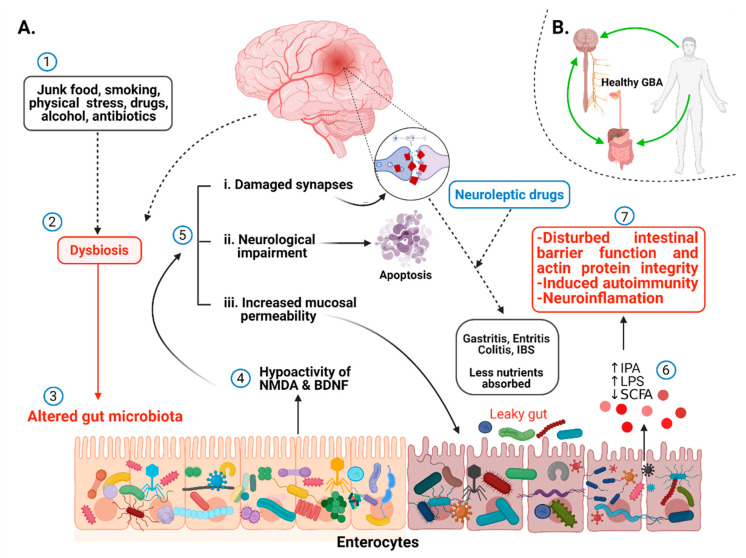Figure 3.
Communication between the gut microbiota and brain in schizophrenia. (A): (1) Junk food, frequent use of drugs, lack of exercise result in gut microbial dysbiosis. (2) Gut microbial dysbiosis means alteration in gut microbial species. (3) Decrease in healthy gut microbiota and increase in pathogenic species. (4) Direct influence of altered gut microbes causes the hypoactivity of NMDA and BDNF receptors. (5) Hypoactivity of NMDA and BDNF receptors results in damaged synapsis, neurological impairments, and increased intestinal membrane permeability as indicated by solid arrows. Consequently, abolishment of spinogenesis, gastritis, enteritis, colitis, and irritable bowel syndrome occurs (indicated by dotted arrows). (6) Altered microbial products such as indole propionic acid (IPA), lipopolysaccharides (LPS), and short-chain fatty acids (SCFA). (7) Anomalous expression of microbial products leads to dysfunction of the intestinal barrier as well as induces autoimmunity and neuroinflammation. (B): Normal gut microbiota is crucial to maintain the gut–brain axis.

